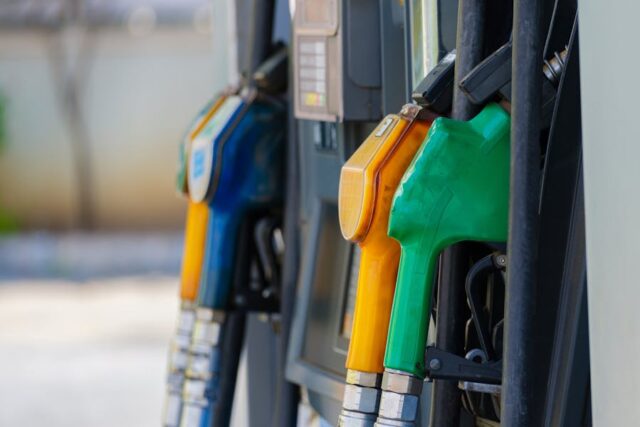The importance of reliable diesel fuel storage is apparent in a variety of industries, including construction and agriculture, where diesel-powered machinery is commonplace. Proper fuel supply management is critical for uninterrupted operations, emphasizing the importance of extending diesel fuel’s shelf life. Understanding how to prolong the shelf life of diesel fuel, therefore, becomes essential for ensuring uninterrupted access to this vital resource.
Understanding Diesel Fuel Durability and Maintenance
Diesel fuel’s integrity and shelf life are important for the seamless operation of vehicles and machinery in various sectors, including transportation, agriculture, commercial, and industrial applications. Properly stored, diesel fuel can remain viable for six to twelve months, a range that applies to both the clear diesel used in road vehicles and the off-road or red-dyed diesel for commercial and industrial use. However, this timeframe can be significantly impacted by several factors that compromise the fuel’s quality and usability.
Contamination
Contamination stands as a primary concern in diesel fuel storage, with water, particulate matter, and other foreign substances posing serious threats. Water contamination is especially detrimental due to its ability to promote microbial growth. Microbes, such as bacteria and fungi, thrive in the water-fuel interface, leading to the production of biofilms that can clog filters and corrode fuel system components. In addition to water, particulate matter such as dust, dirt, and rust can enter the storage system through leaks or during filling and maintenance operations, further degrading the fuel quality by introducing abrasive materials that wear down engine parts.
Temperature Variations
Diesel fuel is also vulnerable to temperature variations. In regions experiencing high temperatures, the volatility of diesel can lead to the evaporation of its lighter components. This not only reduces the fuel’s volume but can also alter its composition, potentially impacting engine performance. Conversely, in colder climates, the temperature drop can lead to the crystallization of paraffin waxes naturally present in diesel. These wax crystals can block fuel filters and lines, impeding fuel flow and causing starting problems or engine failure.
Oxidation
Oxidation is another chemical process that diesel fuel undergoes when exposed to air. This reaction produces peroxides and aldehydes, leading to the formation of gum-like substances that can deposit on fuel injectors and other engine parts, impairing efficiency and potentially causing damage. The rate of oxidation increases with higher temperatures and the presence of metals that act as catalysts, underscoring the importance of temperature control and clean storage conditions.
The Role of Additives
To combat these issues, the strategic use of fuel additives such as biocides and stabilizers becomes essential. Biocides are effective in controlling microbial growth and preventing the biodegradation of diesel fuel. Stabilizers, on the other hand, help in slowing down the oxidation process and maintaining fuel quality over time. However, the effectiveness of these additives is not indefinite; they degrade and lose their protective properties. Regular monitoring and replenishment of these additives are crucial to extend the fuel’s shelf life and ensure its reliability for use.
Maintaining diesel fuel integrity requires a comprehensive approach that addresses potential contaminants, guards against temperature-induced degradation, minimizes oxidation, and employs additives judiciously. By understanding and mitigating these factors, businesses, and operators can ensure their diesel fuel remains a reliable source of power for their operations, extending its lifespan and optimizing performance across a range of conditions.
Strategies to Extend Diesel Fuel Shelf Life
While the typical shelf life of diesel fuel ranges from six to twelve months, implementing strategic measures can significantly extend this timeframe, thus ensuring the longevity of your diesel reserves. Consider the following practices to preserve diesel fuel: choosing optimal storage containers like 55-gallon drums or double-walled, cube-style tanks for space efficiency and security; positioning tanks in cool, dry, and shaded locations such as underground facilities to minimize evaporation and water ingress; using biocides and stabilizers to deter oxidation and microbial growth, with regular evaluation and replenishment; and, if contamination occurs, employing fuel polishing and tank cleaning services to remove impurities and accumulated sediment, thus restoring fuel quality.
Adopting these practices improves the quality and longevity of your diesel fuel, allowing for smoother machinery and vehicle operations. Such strategies increase fuel efficiency while also promoting environmental conservation by reducing waste and the need for frequent fuel replacement.
A Proactive Approach to Diesel Fuel Management
Implementing effective storage and maintenance practices based on an understanding of the factors affecting diesel fuel shelf life can significantly boost operational reliability and efficiency. These approaches not only prolong the life of diesel fuel but also lead to cost savings and environmental benefits by cutting down on waste and minimizing the necessity for regular fuel replenishment. As we move towards a more energy-conscious and efficiency-driven industrial landscape, the role of meticulous diesel fuel management becomes increasingly vital. Emphasizing sustainable practices and efficient fuel use not only aligns with global environmental goals but also ensures that industries can maintain high levels of productivity without unnecessary interruptions.














